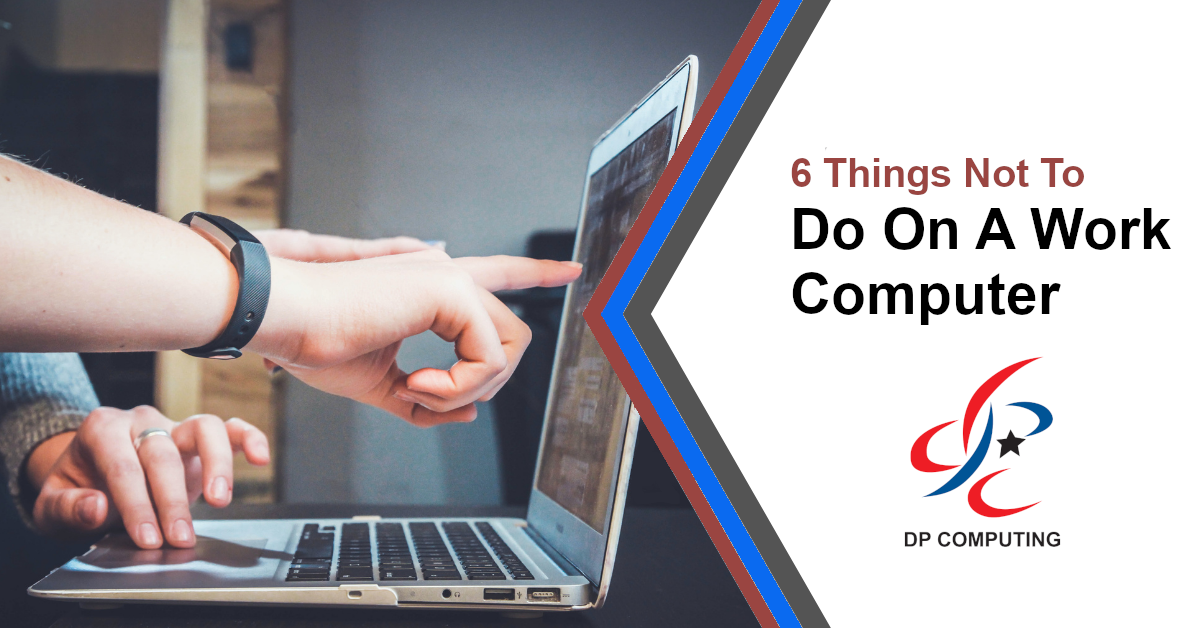
Whether you work remotely or in an office, there is a fine line between personal and work tasks on a company computer. Like a lot of people that are in front of a computer for most of their work day, it is not unusual to get attached to your desktop laptop or PC.
Over time, this can lead people to do personal things on that work computer. It might start off by just checking personal emails while on a break but as you spend longer at the one organisation the line gets crossed more and more.
In a survey of over 900 employees, it was found that only 30% said they never used their work PC for personal activities. The other 70% admitted to using their work computer for various personal reasons including:
- Reading and sending personal emails.
- Browsing social media sites.
- Online banking.
- Scanning the latest news headlines.
- Shopping online.
- Streaming music & videos.
Yes, it is very convenient to quickly login to your email or Facebook and have a quick browse or even transfer some money between bank accounts. But you could get cautioned or even lose your job. What looks like simple and innocent thing to you may cause a data breech or the spread of a virus through out your company’s network.
Here are several things you should never do on your work PC.
1. Do Not Visit Dodgy Websites
Malicious websites are one of the most common ways to spread viruses and malware. Companies should have cybersecurity measures in place to protect their systems but no system is 100% perfect and you don’t want to be the cause of why your companies network has gone down!
Companies also have monitoring in place so any activity you do could be accessible by your boss and / or the IT department. You should never visit any website that you would not be comfortable visiting with your boss looking over your shoulder.
2. Do Not Install Software Without Prior Approval
Yes, it may be “your” computer but the company still owns it. This means you can’t go about willy-nilly and install whatever software you want. If you need a particular application, get prior approval from your manager / IT team otherwise that program could cause a number of issues including:
- hardware / software incompatibilities.
- licensing issues.
- possible entry point for malware.
3. Never Save Your Personal Passwords In the Browser
Auto saving passwords within your browser can be a real time saver. But remember that the work computer can be taken away from you at any time and then who has access to your private passwords?
As the computer is not yours, it can be taken away for any number of reasons, such as a repair, an upgrade, or during an unexpected transfer / termination.
Also with older computers, some companies donate them to worthy causes or put them up for auction. Your company may have wiped all their data but may inadvertently leave your personal data and passwords alone as the are not aware of there presence. This could then leave your passwords in the hands of a stranger.
4. Never Store Personal Data On A Work Computer
It can be easy to get in the habit of storing personal data on your work computer, it maybe something you have downloaded off the Internet or a document you brought in to print out. But, as with saving passwords, this is a very bad habit and leaves you wide open to a couple of issues:
- If you lose access to the PC for any reason, your files can be lost forever.
- Your personal files may be accessed by other company members. Those personal photos stored on your work PC that you’d rather not have anyone else see could potentially be accessed by other staff members or the IT department.
5. Do Not Allow Family Members or Staff to Access It
If the device is a laptop and you regularly bring the laptop home (or are permanently working from home) then it can be tempting to allow other family members or friends to use the device.
But allowing doing so can cause the following issues:
- compliance breeches. Your company may need to follow strict data protection regulations and allowing a non staff member to use your computer may breech them.
- unauthorised access to company data. Confidential data of your company and the company’s clients could be accessed by someone not authorized to do so.
- a person randomly browsing the internet could cause security issues that can infect your device and spread to other devices in your company.
6. Don’t Uninstall Applications or Change Settings
Company installed programs and applications are there for a reason and it usually relates to security, productivity and business continuity. They should not be turned off or uninstalled unless given express permission by your manager or the IT team. Similarly with settings, do not change them unless instructed.
If you have issues with a setting or application contact your IT support department to discuss further.
How Secure Are Your Devices?
If you are a business owner and are concerned with your IT usage amongst your employees, please contact us and schedule a call to discuss your concerns.
